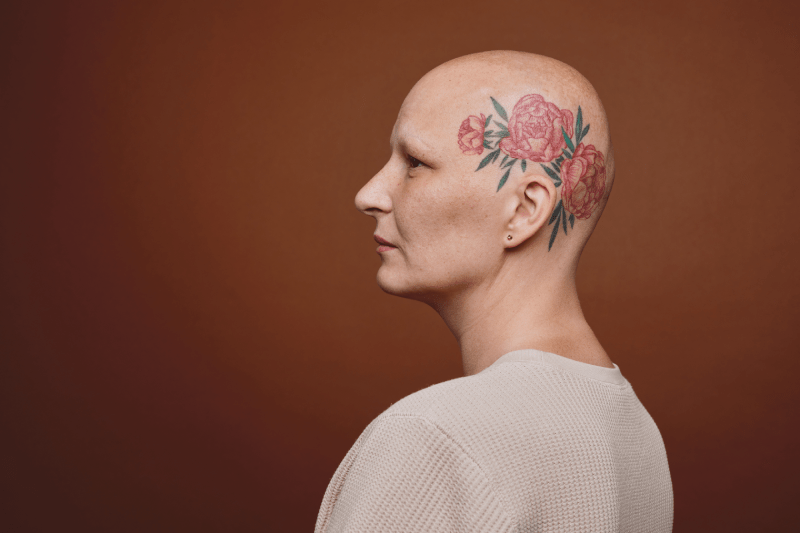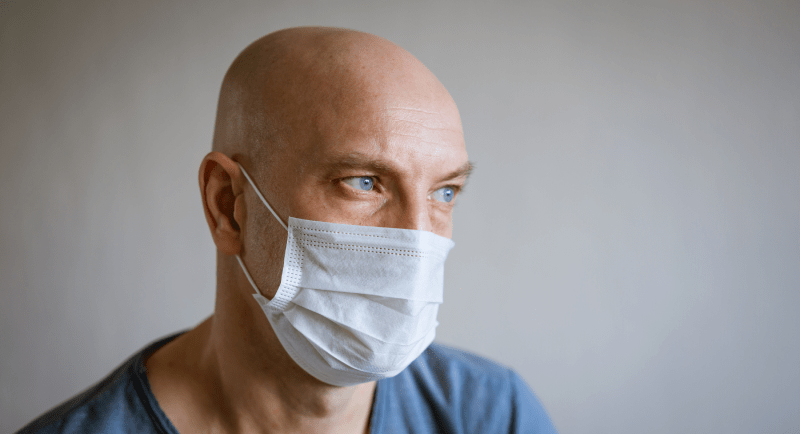End-Stage Cancer Treatment in Turkey
Receiving a cancer diagnosis, especially reaching Stage 4 (metastatic) status, is a source of deep concern for patients and their families. However, modern oncology has redefined the treatment goals for this stage. Today, Stage 4 cancer can often be managed like a chronic disease; life expectancy is extended while quality of life is preserved, thanks to immunotherapy and smart drugs. Turkey is a leading health tourism hub offering fast and affordable access to these advanced treatments. Here are the 35 most frequently asked questions about End-Stage Cancer treatment.
What Does The Term End-Stage Cancer Mean Today?
End-stage cancer generally refers to Stage 4, where cancer has spread to a distant part of the body (metastasized). However, this definition no longer signifies definitive hopelessness. Current oncology practice treats Stage 4 not as the end of treatment, but as a chronic condition that requires long-term management. The goal of treatment is to control cancer cells with systemic therapies like immunotherapy and smart drugs, to prolong the patient’s life as much as possible, and to ensure they can carry out daily activities smoothly during this time.
What Are The Main Goals And Objectives In Advanced-Stage Cancer Treatment?
The main goal in advanced-stage cancer treatment is to prolong life by bringing the disease under control rather than eradicating it completely, and to maintain the patient’s quality of life at the highest possible level. To achieve this goal, reducing the tumor burden, slowing the progression of cancer, and effectively managing symptoms like pain and shortness of breath caused by metastases are essential. The treatment plan is meticulously personalized according to the patient’s individual genetic makeup and the tumor’s molecular characteristics, thereby minimizing the side effects of aggressive therapy.
Does Turkey Meet International Standards In Advanced-Stage Cancer Treatments?
Turkey has centers equipped with cutting-edge technology and holding international accreditations such as JCI (Joint Commission International) in the field of oncology. These centers base their treatment protocols on global guidelines such as ESMO (European Society for Medical Oncology) and NCCN (National Comprehensive Cancer Network). This means that chemotherapy, immunotherapy, and radiotherapy techniques (especially SBRT/VMAT) applied in Turkey are on par with the best centers in Western countries, which provides great assurance for international patients.
What Factors Determine The Response To Treatment In Stage 4 Cancer?
The most important factors determining the response to treatment in Stage 4 cancer are the tumor’s molecular subtype and genetic mutations, the patient’s general health status (performance status), and the tumor’s PD-L1 expression level. Whether the treatment will be with smart drugs or immunotherapy is determined based on these molecular test results. Furthermore, the patient’s compliance with treatment, nutritional status, and psychological resilience are also crucial factors that directly affect overall treatment success and lifespan.
How Has Immunotherapy Revolutionized Advanced-Stage Cancer Treatment?
Immunotherapy has revolutionized advanced-stage cancer treatment by activating the patient’s own immune system to recognize and destroy cancer cells. Especially in metastatic melanoma, lung, kidney, and bladder cancer, immunotherapy can provide more prolonged and durable responses compared to chemotherapy. In some patients, immunotherapy helps reduce the risk of cancer recurrence by creating immune memory even after treatment, making it a unique option in terms of survival and quality of life.
For Which Stage 4 Cancer Patients Are Smart Drug Treatments Suitable?
Smart drug treatments (targeted therapies) are suitable only for Stage 4 cancer patients in whom specific genetic mutations (e.g., EGFR, ALK in lung cancer; BRAF in melanoma) are detected in the tumor cells. These drugs block the targets critical for the cancer cell’s growth and proliferation. Advanced molecular diagnostic centers in Turkey rapidly identify these mutations, enabling patients to start personalized treatment immediately, which significantly increases treatment efficacy.

What Is The Role Of Radiotherapy (SBRT) Treatment In Metastatic Disease?
In metastatic disease, radiotherapy plays a critical role, especially in oligometastatic cases (a few spread foci in the body), to achieve local control and alleviate symptoms. High-precision techniques like SBRT (Stereotactic Body Radiotherapy) can destroy metastases with local control rates similar to surgery. This can enhance the response to systemic treatment (immunotherapy or smart drugs) and directly improve the patient’s quality of life by quickly eliminating symptoms like pain or bleeding.
Why Is The Multidisciplinary Tumor Council Decision Vitally Important?
The decision of the Multidisciplinary Tumor Council is vitally important in Stage 4 cancer treatment because the complexity of the treatment transcends a single specialty. The council brings together a medical oncologist, radiation oncologist, surgeon, and pathologist to evaluate all of the patient’s data (genetic analysis, imaging) collaboratively. This collective intelligence, based on the latest scientific data, determines the most appropriate combination of systemic, local, and supportive treatments for the patient, thereby maximizing treatment success and patient safety.
Is It Possible To Participate In Clinical Trials At Oncology Centers In Turkey?
Leading academic and large private oncology centers in Turkey actively participate in clinical trials in cooperation with international pharmaceutical companies and research organizations. This offers a significant opportunity for Stage 4 cancer patients who do not respond to standard treatments or have rare genetic mutations. Clinical trials provide access to the newest treatment agents and innovative protocols not yet available on the market. However, the decision to participate requires ethical board approval and detailed medical evaluation.
What Is The Importance Of Palliative Care In Advanced-Stage Cancer Treatment?
Palliative care is a support system that must be absolutely integrated into advanced-stage cancer treatment and is not merely end-of-life care. Its importance lies in controlling the patient’s symptoms like pain, fatigue, shortness of breath, and nausea, thereby improving the quality of life. Palliative care, applied concurrently with oncology treatment, also addresses the patient’s psychological and social needs, strengthening their compliance with treatment and even potentially contributing positively to survival duration according to some studies.
How Are Treatment Costs Determined In Metastatic Disease In Turkey?
Treatment costs in metastatic disease are determined by multiple factors, including the type of smart drug or immunotherapy agent to be used, the duration of treatment, the radiotherapy technique applied (SBRT), and the length of hospital stay. Turkey offers access to these advanced treatments at 50-70% more affordable costs compared to Western countries. Health tourism consultants aim to eliminate cost uncertainty by offering transparent, all-inclusive packages that cover treatment, accommodation, and transfer for international patients.
Are Waiting Times Long For Advanced Oncology Treatment In Turkey?
Waiting times are very short for advanced oncology treatment (especially immunotherapy and smart drugs) in Turkey. After diagnosis and molecular tests are completed, treatment usually begins quickly. This ensures that in a disease like cancer where time is vital, patients gain immediate access to treatment without being delayed by long waiting lists in Western countries. This rapid start is a significant advantage that positively affects patients’ overall prognosis and chance of responding to treatment.
How Is Pain Management Provided In Advanced-Stage Cancer?
Pain management in advanced-stage cancer is one of the most critical elements for preserving the patient’s quality of life. Pain management is provided by palliative care specialists using methods such as drug therapies (including opioids), regional nerve blocks, and radiotherapy (palliative radiation) applied to metastasis sites. Completely eliminating pain or reducing it to an acceptable level enhances the patient’s participation in daily activities and overall morale.
Why Is Nutritional Support Important During Cancer Treatment?
Nutritional support during cancer treatment is critically important for preserving muscle mass, strengthening the immune system, and combating treatment side effects. Against the risk of cancer cachexia (weight loss and muscle wasting), personalized, high-protein, high-calorie nutrition plans are created by dietitians. A well-nourished patient tolerates the intensity of chemotherapy and radiotherapy better, indirectly increasing the chance of treatment success.
How Long Can Stage 4 Cancer Treatment Continue?
Stage 4 cancer treatment can generally continue for many years as long as the disease is kept under control and the patient does not experience severe side effects. Immunotherapy and some smart drugs can be continued for life or until the risk of recurrence is eliminated (up to 2 years in some protocols), provided the patient responds. The duration of treatment is determined by regular imaging (CT/PET-CT) and blood tests based on the patient’s individual response.

What Is The Treatment For Brain Metastases In Metastatic Cancers?
The treatment for brain metastases in metastatic cancers is usually done with local methods. The treatment depends on the number and size of the metastases. For a small number of metastases (1-3 lesions), Stereotactic Radiosurgery (SRS) or SBRT is preferred, which spares healthy brain tissue. Whole-brain radiation therapy is applied for more widespread metastases. Systemic treatments (smart drugs, immunotherapy) also support therapy with special agents that can cross the blood-brain barrier.
What Is The Importance Of Getting A Second Opinion In Advanced-Stage Cancer Treatment?
Getting a second opinion in advanced-stage cancer treatment is critically important to ensure the patient has access to the correct and current treatment protocol. Especially in cases of rare tumor types or developed resistance, a second Tumor Council opinion from an internationally accredited center may offer a different molecular analysis or a new clinical trial option. This step increases confidence in the treatment and helps the patient make the best decision.
How Does Psychological And Social Support Affect Treatment Success?
Psychological and social support is a factor that directly affects the success of advanced-stage cancer treatment. Psycho-oncology support, offered from the moment of diagnosis, helps the patient and their family cope with emotional difficulties like anxiety, depression, and fear of treatment. High morale and strong social connections increase the patient’s compliance with treatment, support the immune system, and indirectly affect survival duration positively. This support prevents the patient from feeling isolated.
What Steps Are Followed If Cancer Develops Resistance?
The first step to be followed if cancer develops resistance to smart drugs or chemotherapy is a new biopsy or liquid biopsy to identify new resistance mutations. This analysis reveals how the tumor has changed. Subsequently, a switch is made to second or third-generation smart drugs developed against the new mutations, or immunotherapy/chemotherapy combinations are added to the treatment. Understanding resistance mechanisms is a dynamic process that requires constantly updating the treatment.
What Is The Access To The Newest Drugs Used In Cancer Treatment In Turkey Like?
Leading oncology centers in Turkey generally provide fast and uninterrupted access to the newest immunotherapy and smart drugs (e.g., CAR T-cell therapy, new-generation TKIs) approved internationally. While drug approval processes can take a long time in Western countries, patients in Turkey can start their treatments without delay, thanks to the dynamic nature of the Turkish healthcare system. This provides a critical time advantage, especially for Stage 4 cancer patients.
What Is The Advantage Of The Combination Of Chemotherapy And Immunotherapy?
The main advantage of the combination of chemotherapy and immunotherapy is utilizing the synergistic effect of the treatment. Chemotherapy kills cancer cells, and the released antigens activate the immune system. Immunotherapy then enables these activated immune cells to target the cancer more effectively. This dual-action approach provides higher and more durable response rates than standalone therapies, making it the first choice in Stage 4 patients without genetic mutations.
How Are Life Expectancy Expectations Determined In Metastatic Disease?
Life expectancy expectations in metastatic disease are determined according to the patient’s cancer type, the tumor’s genetic and molecular characteristics, and the response to treatment. General statistics alone are not decisive; oncologists evaluate the patient’s condition with personalized data. Life expectancy expectations have significantly lengthened compared to past data, especially in patients who achieve long-term remission with immunotherapy and smart drugs.
How Is Support Provided To Cope With Side Effects During Cancer Treatment?
Support to cope with side effects during cancer treatment is an important part of the multidisciplinary team. In advanced centers, advanced antiemetics for nausea/vomiting, palliative care for pain, strict hygiene and supportive drugs against the risk of infection are used. Dietitians offer solutions for issues like loss of appetite and taste changes. The goal is to minimize side effects, ensuring the patient can continue the treatment protocol without interruption.
What Are The Symptoms Of Recurrence And How Are They Monitored In Long-Term Follow-Up?
Symptoms of recurrence in long-term follow-up include unexplained severe pain, persistent cough, rapid weight loss, and new neurological symptoms. These signs may indicate the cancer’s return. Monitoring is performed with regular CT/PET-CT imaging and blood tests every 3-6 months during the first two years. Liquid biopsy is a modern follow-up method used in Stage 4 patients to detect recurrence or resistance development at a very early stage.
When Can Surgery Be An Option In Stage 4 Cancer?
Surgery is rarely used with curative intent in Stage 4 cancer, but it can be an option for palliative (comforting) purposes. Surgery may be considered to relieve bowel obstruction, stop bleeding, or remove a single, isolated metastasis (oligometastasis) to reduce the tumor burden. These surgical interventions alleviate the patient’s symptoms and allow systemic treatments to be more effective.
How Is Quality Assurance Provided In Oncology Centers In Turkey?
Quality assurance in oncology centers in Turkey is provided through international JCI accreditation, regular internal and external audits, and active participation in international congresses. These accreditations confirm the centers’ commitment to high standards in patient safety, correct diagnosis, and applying current treatment protocols. This transparent quality assurance system ensures international patients can confidently begin treatment.

Is It Possible To Travel And Work During The Course Of Treatment?
Traveling and working during the course of treatment depend on the type of treatment received and the severity of side effects. Patients taking oral smart drugs or receiving mild immunotherapy can continue their work and social lives. Travel between intensive chemotherapy cycles can be planned with the doctor’s approval. International patients treated in Turkey can take advantage of the country’s cultural and tourist opportunities during treatment breaks to boost morale.
What Is The Role Of Early And Late Diagnosis In Treatment Success?
The role of early diagnosis in treatment success is absolutely prioritized for curative (healing) purposes. Early diagnosis offers the chance for complete surgical removal before the cancer spreads throughout the body. In the case of late diagnosis (Stage 4), treatment goals shift to control and improving quality of life. However, current treatments (immunotherapy, smart drugs) show significant success in prolonging life and managing the disease for many years, even with a late diagnosis.
What Is The Logistics Support Like For International Patients Receiving Treatment In Turkey?
Logistics support for international patients receiving treatment in Turkey is provided comprehensively through health tourism consultants like Cure Holiday. This support includes airport transfers, accommodation arrangements near the hospital, 24/7 medical interpretation services, and follow-up of the treatment processes. These holistic services eliminate all difficulties the patient and their family might encounter in a foreign country, allowing them to focus entirely on the treatment.
What Lifestyle Is Recommended To Preserve Quality Of Life In The Long Term?
To preserve quality of life in the long term, adherence to lifestyle changes such as healthy nutrition, regular low-intensity exercise, and stress avoidance is recommended. A high-protein diet is important for preserving muscle mass. Regular walking and light activities keep energy levels high. Furthermore, strict adherence to the annual regular medical follow-ups determined by the treatment team is the key to long-term quality of life.
Why Is Understanding Resistance Mechanisms In Targeted Therapies Important?
Understanding resistance mechanisms in targeted therapies is critically important for sustaining the success of the treatment. Cancer cells can evade the drug’s effect by developing new mutations over time. The detection of resistance mechanisms (with liquid biopsy) enables oncologists to accurately determine the next treatment option (new-generation smart drug or combined therapy). This dynamic process mandates the continuous updating of Stage 4 cancer treatment.
What Is The Role Of Imaging Methods In Monitoring Treatment Response?
Imaging methods (CT, MRI, PET-CT) play a fundamental role in monitoring treatment response. These methods objectively show the reduction in tumor size (response) or the state of growth/spread (progression). PET-CT, in particular, is very sensitive in determining the early effect of treatment by measuring the tumor’s metabolic activity. Regular imaging prevents the oncologist from unnecessarily continuing ineffective treatments.
Why Is Immunotherapy Used For A Long Period In Diseases Like Lung Cancer?
Immunotherapy is used for a long period (generally up to 2 years) in diseases like lung cancer because it provides long-term control of the cancer by creating immune memory. Immunotherapy is not a drug whose effect ends as soon as it is eliminated from the body, like chemotherapy; it permanently trains the immune system against cancer. Long-term use supports the continuity of this immune response and minimizes the risk of potential recurrence.
What Advanced Radiotherapy Devices Are Available In Oncology Centers In Turkey?
Oncology centers in Turkey possess world-class advanced radiotherapy devices. These include VMAT (Volumetric Modulated Arc Therapy), high-precision SBRT (Stereotactic Body Radiotherapy), and Robotic Radiosurgery systems. These devices minimize damage and side effect risk to surrounding healthy tissue by focusing radiation on the tumor with millimetric precision, achieving high success especially in metastasis treatments.
What Is The Factor That Most Affects Long-Term Quality Of Life?
The factor that most affects long-term quality of life is the control of disease symptoms and treatment side effects. Successful palliative care and well-managed systemic treatment allow the patient to live without pain or shortness of breath and to continue daily activities. Maintaining physical activity, preserving social connections, and receiving psychological support are the most defining elements in increasing quality of life.
What Is The Relationship Between Cure Rates And Life Expectancy In Treatment?
Although complete cure (remission) rates are low in advanced-stage cancer treatment, modern therapies (immunotherapy, smart drugs) have significantly increased the rates of long-term disease control and prolonging life expectancy. While cure (remission) means the complete disappearance of the disease, life expectancy refers to the duration spent with the disease managed as a chronic condition. Today, life expectancy in Stage 4 is much longer and higher quality than in the past.
What Should Be The First Step To Start End-Stage Cancer Treatment In Turkey?
The first step to start End-Stage Cancer treatment in Turkey is to gather the patient’s current medical reports, CT/PET-CT images, and most importantly, genetic (molecular) analysis results. With these reports, contact Cure Holiday, which offers international health tourism consultancy. Cure Holiday forwards these reports to the most competent oncology centers in Turkey, guaranteeing the patient a personalized treatment plan, a quick and transparent cost quotation, tailored to their individual condition.
End-stage cancer is a challenging process, but Turkey’s international standard oncology centers offer hope and comfort with the latest treatment options and holistic support.
To manage your treatment process with an expert team, access advanced technologies affordably, and receive professional support in all logistical aspects, you can contact Cure Holiday and confidently begin your treatment journey in Turkey.



